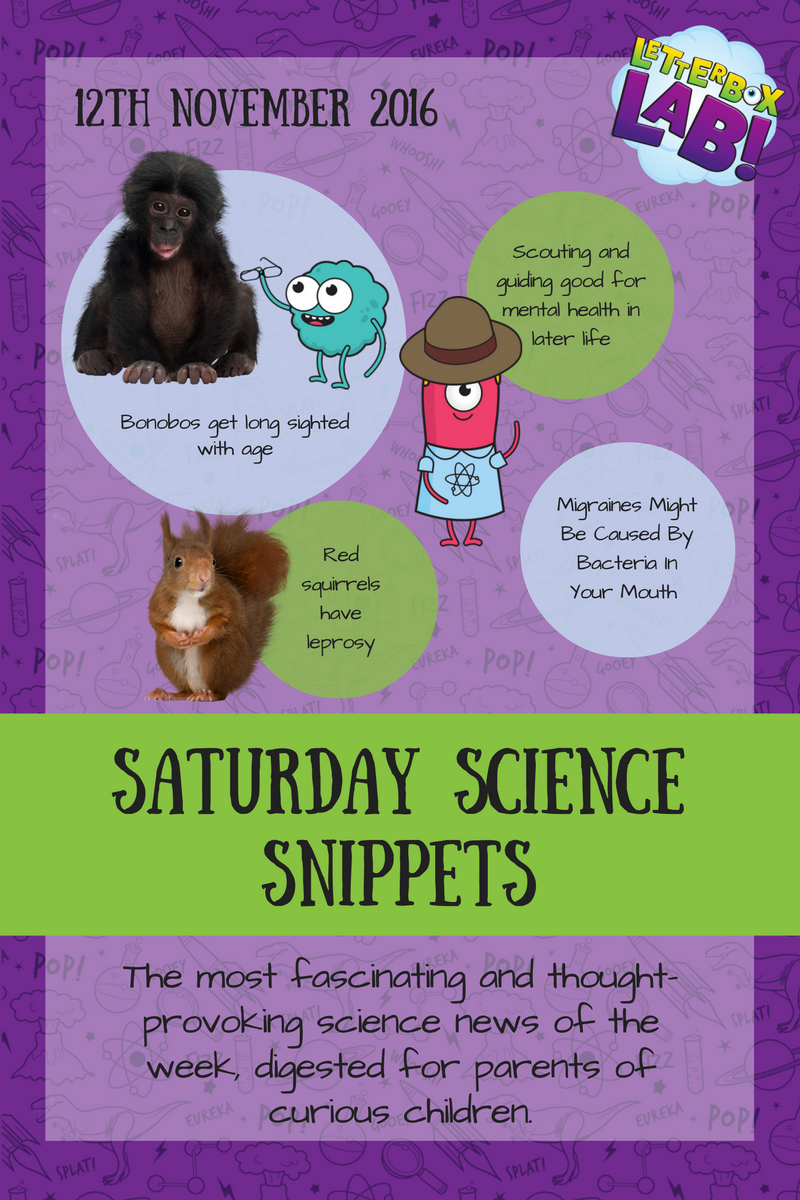Every Saturday we find the most exciting science news stories from the past week and package them up for parents with curious children. What better source could there be for a dinnertime talking point?
Bonobos become long-sighted with ageDoes grandma hold documents at arm’s length to read them? Many humans become long-sighted as they age, and as it turns out, we’re not alone. Researchers in the Democratic Republic of the Congo found that bonobos (apes that are closely related to chimps) have to groom their friends at arm’s length when they get old. In both species the long-sightedness is caused by a hardening of the eyeball and deterioration of the eye muscles which is natural and unavoidable, rather than being caused by years of straining to read or looking at computer screens.
Read more here. Red Squirrels Have LeprosyLeprosy? If you thought that leprosy in the UK was a problem from hundreds of years ago you are not alone, but we all thought wrong. Tests on red squirrels throughout the UK have found that many of them are carrying the bacteria that causes this disease and that they’ve probably been carrying it for centuries! If you are lucky enough to see one of these furry little guys in the wild don’t panic, no one has caught leprosy in the UK in over 200 years so it looks like it doesn’t transfer from squirrel to human.
Read more here. |
Scouting and Guiding Good For Mental Health Later In LifeResearchers in Edinburgh studied the mental health of 100,000 people and found that those who had been scouts or guides were 15% less likely to have mood or anxiety disorders. The people in the study were 50 years old and had, presumably, left the scouts/guides quite some years ago. The effect was not found in people who had attended church groups or other voluntary groups and was put down to how the scouts/guides focus on outdoor activities and their promotion of self-reliance and self-learning in children.
Read more here. Migraines Might Be Caused By Bacteria In Your MouthOur bodies contain more bacterial cells than human ones and it seems they can have a big affect on our health. If you suffer from migraines it might be because you have more of a certain type of bacteria in your mouth. How could it be possible that mouth bacteria could result in blinding and incapacitating headaches? These bacteria turn nitrates in your food to nitrites which then get turned into nitric oxide. Nitric oxide is used to treat angina because it makes blood vessels expand. When the blood vessels in your head and neck expand too much they can become inflamed, throb and cause migraine pain. A lot more work needs to be done before this might lead to any treatments but it does help explain why food high in nitrates can trigger migraines.
Read more here. |






Add Comment